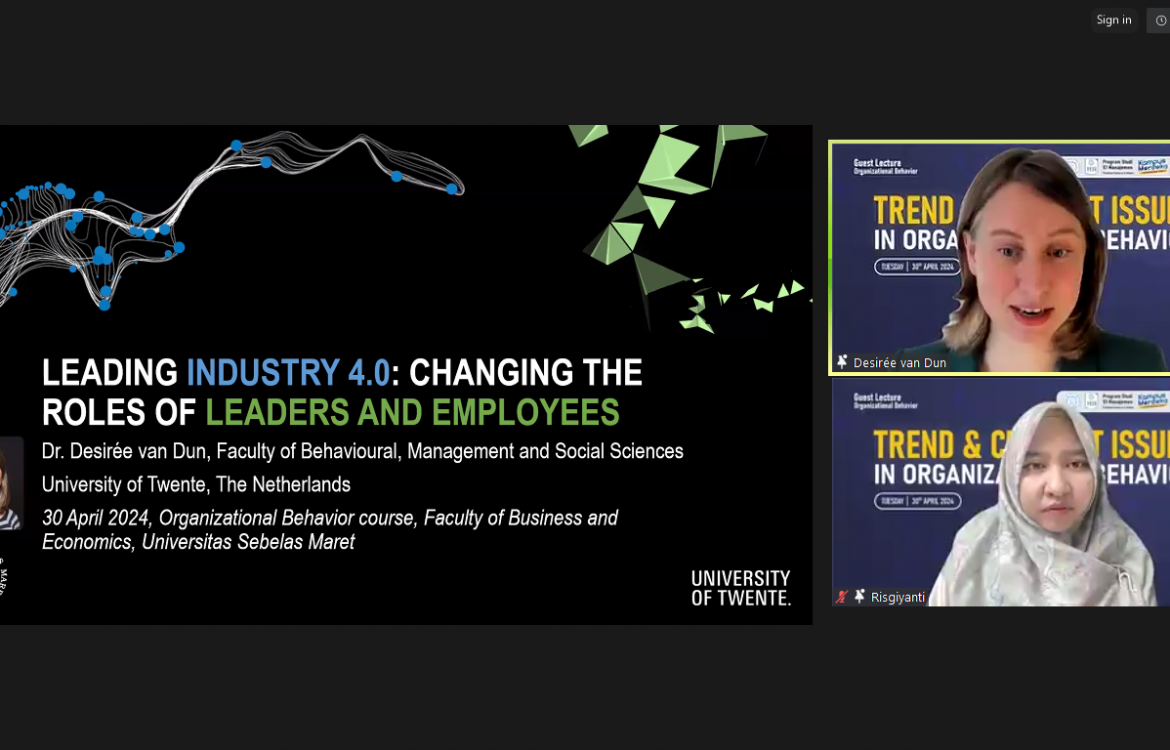
Guest Lecture of the Bachelor’s Degree Program in Management Discusses the Latest Trends and Issues in the Field of Organizational Behavior
The Bachelor of Management Study Program, Faculty of Economics and Business (FEB), Universitas Sebelas Maret (UNS) held a Guest Lecture entitled ‘Trend and Current Issues in Organizational Behavior,’ on Tuesday, April 30, 2024. The guest lecture, which took place virtually through Zoom Cloud Meeting was attended by undergraduate and postgraduate students and lecturers at FEB UNS.
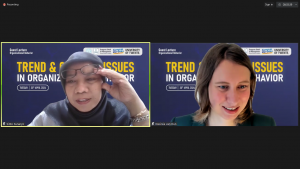 The activity attended by more than 170 participants, was presented by guest lecturer Desiree van Dun from the University of Twente, Netherlands.
The activity attended by more than 170 participants, was presented by guest lecturer Desiree van Dun from the University of Twente, Netherlands.
Dr. Van Dun delivered the material entitled ‘Leading Industry 4.0: Changing the Roles of Leaders and Employees.
She opened the session with an explanation that Industry 4.0 refers to the fourth industrial revolution which is characterized by the use of the Internet and the Internet of Things (IoT), where these changes have a significant impact on organizational behavior.
“Some of the significant effects of this industrial revolution include the changing role of operators with the use of robots or drones as well as the role of artificial intelligence (AI) in highly specialized activities, such as cancer diagnosis,” explained Dr. van Dun.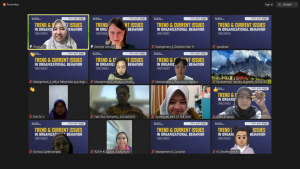
However, she added that although Industry 4.0 affects the role of employees in the organization, the success of implementing the latest technology also depends on the actors in the organization. In this case, there are three scenarios for the application of technology in the work environment, including a scheme where technology/robots are positioned in front of employees so that robots have a role to interact directly with customers.
This scheme is often applied in the customer service process, where customers will interact with chatbots for general questions or problems, and if there are more complex problems the system will direct customers to directly interact with employees (humans).
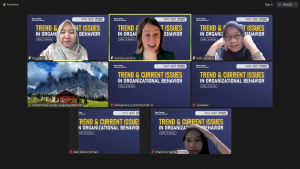 The second scheme is to put robots/systems side by side with employees, where technology will help employees when interacting with customers. The last scheme that can be applied is the placement of systems/programs behind employees, where programs/systems execute processes and tasks from the back office.
The second scheme is to put robots/systems side by side with employees, where technology will help employees when interacting with customers. The last scheme that can be applied is the placement of systems/programs behind employees, where programs/systems execute processes and tasks from the back office.
Regarding the influence of technology on the role of leaders and employees, Dr. van Dun explained that with the help of technology, organizational members have more time to explore existing options and be creative.
“The existence of Industry 4.0 requires higher creativity for both employees and leaders. Moreover, technology can also increase the level of individualism because employees work and interact with technology more often than other colleagues,” explained Dr. van Dun.
Furthermore, Dr. van Dun also explained employee responses to changes related to the application of technology, which can be divided into four response groups.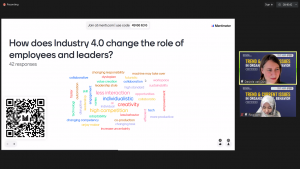
The four response groups are change disengagement, employees view changes negatively but do not actively resist changes; change resistance, employees who actively show or express resistance to changes; change acceptance, employees accept changes but do not actively show support, and the last is proactive change, employees actively show support and participation in changes. In this case, the leader needs to use a different approach for each group.
“As leaders, we must give equal attention to groups that are proactive towards change, as well as listening to and addressing the concerns of groups that resist because they actually have a lot of input for leaders,” said Dr. van Dun.
In the guest lecture that lasted more than two hours, participants were invited to interact directly through Mentimeter, where they could respond directly to several questions from the speaker. In addition, participants were also given the opportunity to submit questions directly to Dr. van Dun in a question-and-answer session.

